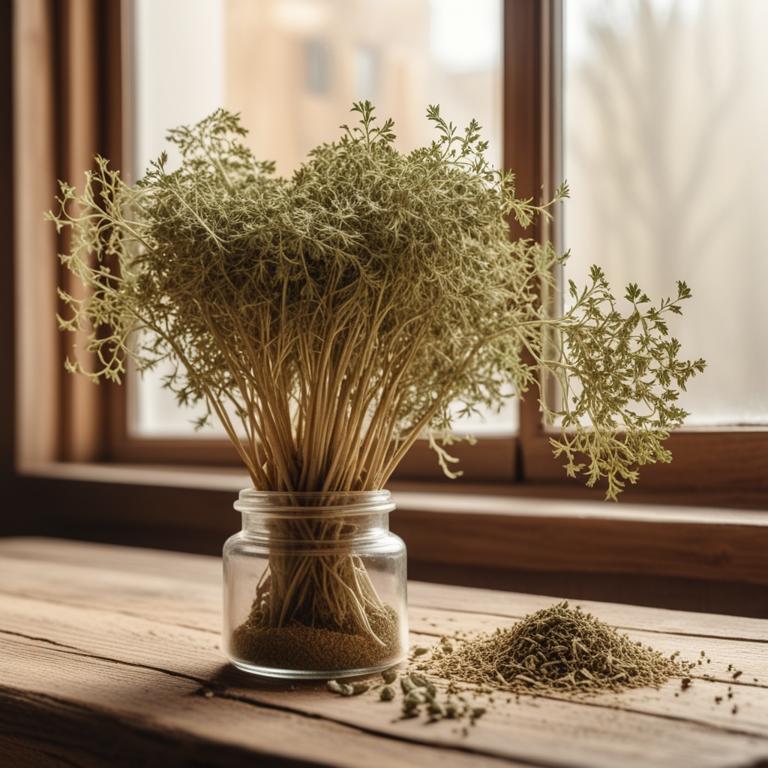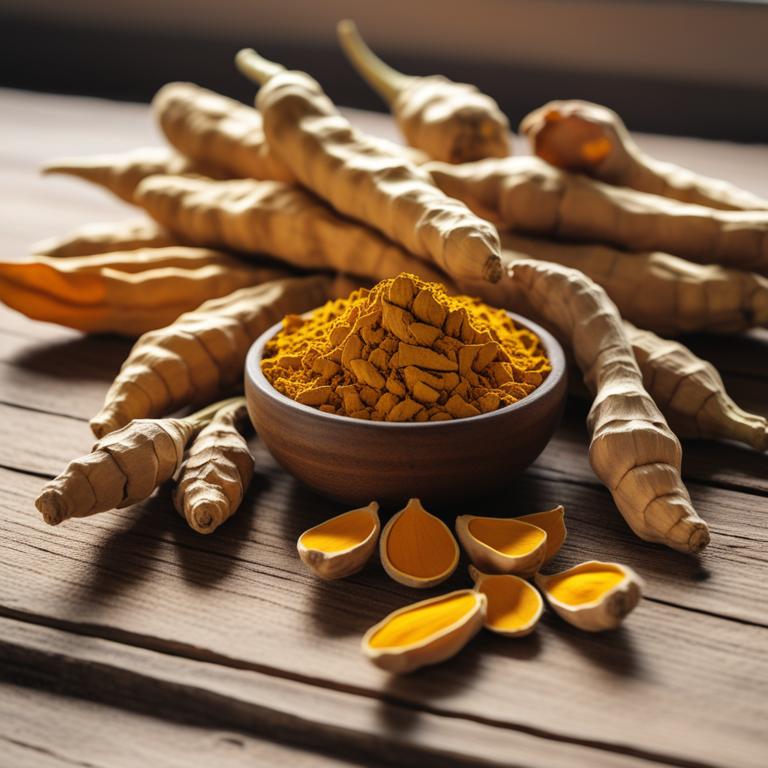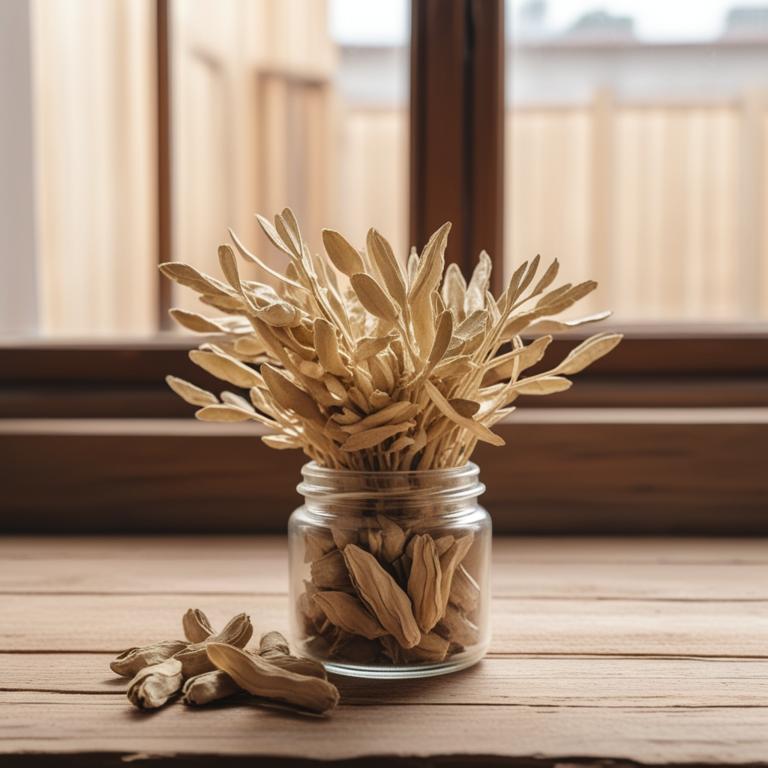Updated: Dec 1, 2024
Understanding Chronic Hepatitis: Causes and Effective Herbal Remedies
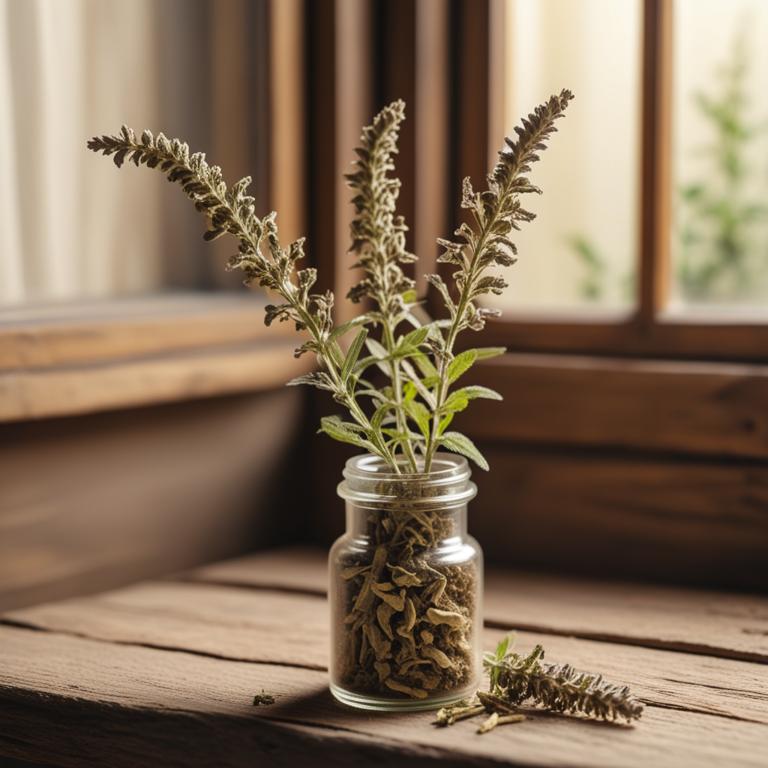
Chronic hepatitis is a long-lasting inflammation of the liver that can lead to serious health issues.
It can cause fatigue, weight loss, and yellowing of the skin and eyes, making everyday life a challenge. The liver plays a vital role in filtering toxins and digesting food, so when it's damaged, it can't do its job properly. Chronic hepatitis is usually caused by a viral infection, such as hepatitis B or C, but it can also be triggered by autoimmune disorders or exposure to toxins. Herbal remedies have been used for centuries to help manage chronic hepatitis.
Herbs like milk thistle, dandelion root, and turmeric have anti-inflammatory properties that may help reduce liver inflammation. Licorice root is also known to have protective effects on the liver. These herbs can be consumed as teas, capsules, or infusions. Drinking milk thistle tea or taking dandelion root capsules may help stimulate liver function and promote the removal of toxins. Turmeric, often consumed as a golden milk, may help reduce inflammation and improve digestion.
Licorice root can be made into a tea or taken as a capsule to help soothe the liver and promote its natural repair processes.
Table of Contents
- What causes chronic hepatitis to develop?
- Can herbs provide any benefits for individuals with chronic hepatitis?
- What are the main medicinal herbs recommended for chronic hepatitis?
- What are the most effective herbal preparations for treating chronic hepatitis?
- Should you avoid certain herbs if you have chronic hepatitis?
- FAQ
What causes chronic hepatitis to develop?
The main causes of chronic hepatitis are infections and the body's own immune system.
Hepatitis B virus (HBV) is a major cause of chronic hepatitis. When HBV infects the liver, it can stay there for many years, causing ongoing inflammation and damage. This happens when the virus is not cleared from the body by the immune system. Hepatitis C virus (HCV) is another leading cause of chronic hepatitis. HCV is particularly difficult to get rid of, and it can lead to long-term liver damage and scarring.
People with HIV are also at higher risk of developing chronic hepatitis. This is because HIV weakens the immune system, making it harder for the body to fight off other infections, including the viruses that cause hepatitis. Autoimmune hepatitis is a condition where the body's immune system mistakenly attacks the liver. This can cause inflammation and damage to the liver, leading to chronic hepatitis. Alcohol is another major cause of chronic hepatitis.
Drinking too much alcohol can cause liver inflammation and damage, and in some cases, lead to cirrhosis, a serious condition where the liver becomes scarred and cannot function properly.
Can herbs provide any benefits for individuals with chronic hepatitis?
Using herbs for chronic hepatitis can be beneficial in several ways.
They may help reduce inflammation and swelling in the liver, which is a common issue in people with chronic hepatitis. Some herbs have antioxidant properties, which can help protect the liver cells from damage caused by free radicals.
This can slow down the progression of the disease and prevent further liver damage. Herbs may also boost the immune system, helping the body fight off the underlying infection that causes chronic hepatitis. Additionally, they may help improve liver function and promote the production of liver cells, which can aid in the recovery process.
Some herbs have been shown to have anti-viral properties, which can help reduce the viral load in the body and make the disease easier to manage.
What are the main medicinal herbs recommended for chronic hepatitis?
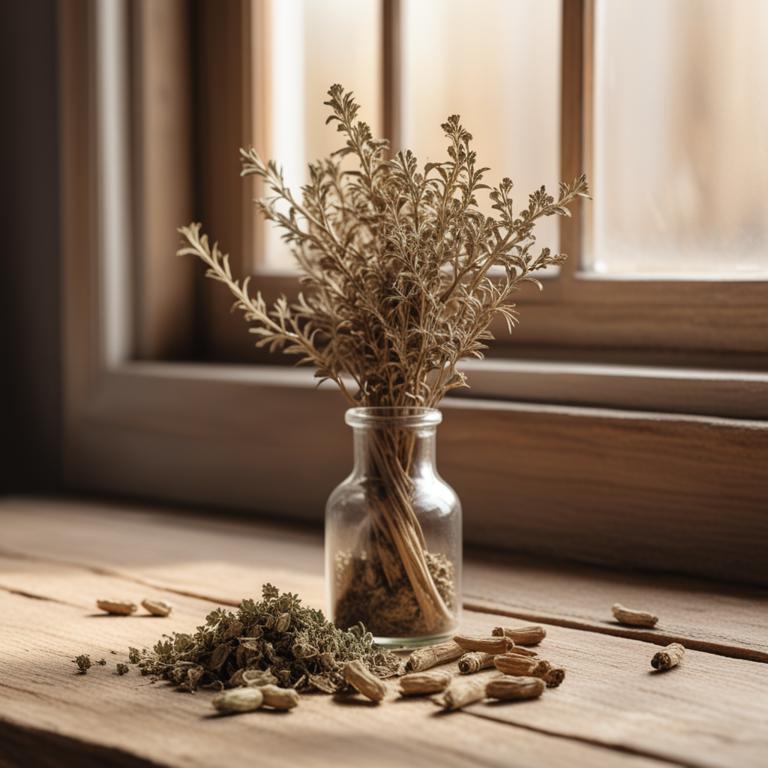
Herbs have been used for centuries to help manage chronic hepatitis, a condition where the liver becomes inflamed and damaged.
One herb that's particularly useful is Glycyrrhiza glabra, also known as licorice root. It contains compounds that help reduce inflammation and protect the liver cells from damage. Curcuma longa, or turmeric, is another herb that's been shown to have anti-inflammatory properties, which can help ease liver inflammation and promote healing.
Silybum marianum, or milk thistle, is rich in silymarin, a compound that helps repair damaged liver cells and prevent further damage. Astragalus membranaceus, a plant commonly used in traditional Chinese medicine, has been found to boost the immune system and help the liver recover from inflammation. Finally, Panax ginseng, a plant known for its adaptogenic properties, can help reduce stress and promote liver health by improving blood flow and reducing inflammation.
These herbs work together to help manage symptoms, promote liver health, and support the body's natural healing process.
What are the most effective herbal preparations for treating chronic hepatitis?
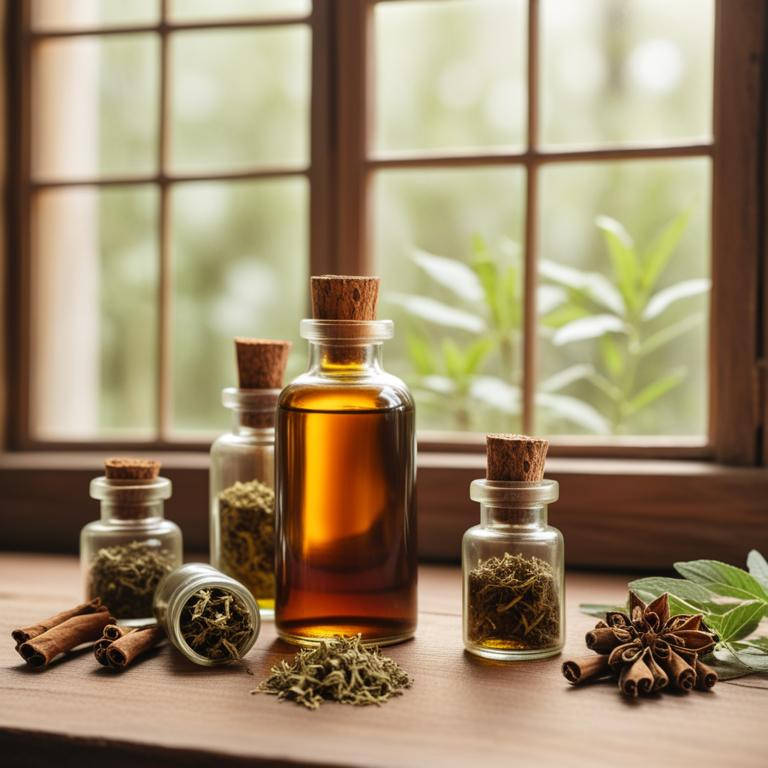
For people with chronic hepatitis, herbal preparations can be a helpful addition to their treatment plan.
These preparations come in different forms, each with its own unique benefits. For example, herbal capsules are easy to swallow and provide a concentrated dose of the active ingredients. They're often made from standardized extracts, which means the amount of active compounds is consistent from one capsule to the next. This consistency can be particularly useful for people who need to take medications regularly. Herbal tinctures are another option, and they're usually made from a combination of herbs that are extracted in a solvent like ethanol or glycerin. Tinctures are often more potent than capsules, so a little bit goes a long way. They're also easy to mix with water or other liquids, making them a convenient choice for people who have trouble swallowing capsules. Decoctions are a type of herbal preparation that involves steeping herbs in hot water. This method is often used for roots and bark, which can be tough and fibrous.
Decoctions are a good choice for people who want to experience the full range of flavors and benefits from their herbs. They can be made with a single herb or a blend of herbs, and they're often used to make teas or infusions. Infusions are similar to decoctions, but they're made with dried herbs that are steeped in hot water. Infusions are a good choice for people who want a lighter, more delicate flavor from their herbs. They're often used to make herbal teas, and they can be made with a single herb or a blend of herbs. Finally, herbal gels are a type of preparation that's often used to soothe and calm the skin. They're usually made from a combination of herbs that are infused in a carrier oil, which is then thickened with a gelling agent like beeswax or pectin. Herbal gels can be applied topically to reduce inflammation and promote healing in the skin. They're often used to treat skin conditions like eczema and psoriasis, which can be triggered or exacerbated by liver disease.
In general, herbal preparations can be a useful addition to a treatment plan for chronic hepatitis, but it's always best to talk to a healthcare provider before starting any new supplements or medications.
Additional Resources:
Should you avoid certain herbs if you have chronic hepatitis?
If you have chronic hepatitis, it's a good idea to be careful about the herbs you use.
Some herbs can make liver problems worse, and that's especially true for people with chronic hepatitis. For example, Cinchona officinalis, also known as fever tree, has compounds that can increase liver enzymes and worsen liver damage. Ephedra sinica, or ma huang, can cause liver inflammation and damage because it increases liver enzymes and bile production.
Pausinystalia johimbe, or yohimbe, can also cause liver inflammation and damage due to its high levels of yohimbine, which can be toxic to the liver. Hydrastis canadensis, or goldenseal, contains berberine, a compound that can increase liver enzymes and worsen liver damage. Valeriana officinalis, or valerian root, may be safe for some people with liver problems, but it's still a good idea to talk to your doctor before using it, especially if you're taking other medications.
The bottom line is, if you're not sure about an herb, it's always best to err on the side of caution and talk to your doctor first.
FAQ
Are there any specific herbs that can prevent chronic hepatitis?
Some herbs, like milk thistle, may help protect the liver from damage.
Silymarin, a compound in milk thistle, has been shown to reduce liver inflammation and improve liver function. Turmeric also has anti-inflammatory properties that may help prevent liver damage and promote healing.
These herbs may be beneficial for people with chronic hepatitis.
Is it safe to use herbal remedies for chronic hepatitis during pregnancy?
Using herbal remedies for chronic hepatitis during pregnancy is not recommended.
Many herbs can cause harm to the mother and baby. They can affect the liver, cause bleeding problems, and even lead to birth defects.
It's best to stick with treatments your healthcare provider recommends for a healthy pregnancy.
Are there any herbs that can reduce the frequency of chronic hepatitis?
There's some evidence that certain herbs may help reduce the frequency of chronic hepatitis.
Milk thistle, for example, contains a compound called silymarin, which may protect the liver from damage. Turmeric, with its active ingredient curcumin, has anti-inflammatory properties that might also help.
Research suggests these herbs may be beneficial, but more studies are needed to confirm their effectiveness.
Can i combine different herbal remedies for chronic hepatitis?
Combining herbal remedies for chronic hepatitis can be done, but it's essential to understand how they interact with each other.
Some herbs, like milk thistle and dandelion root, may enhance each other's effects, while others, like licorice root and green tea, might cancel them out.
Start with small doses and monitor how your body reacts.
Related Articles
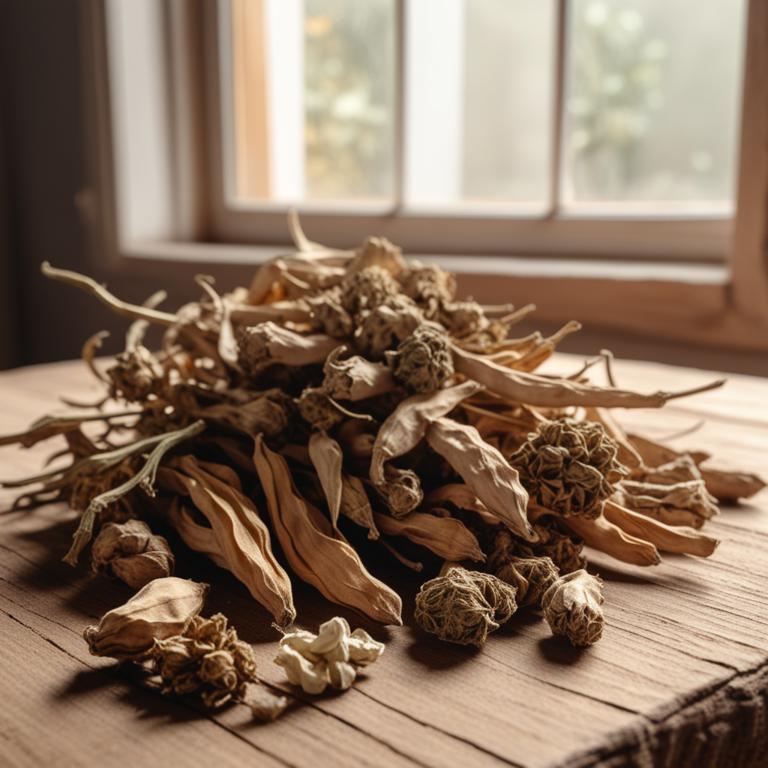
Gerd: Understanding the Causes and Benefits of Herbal Remedies
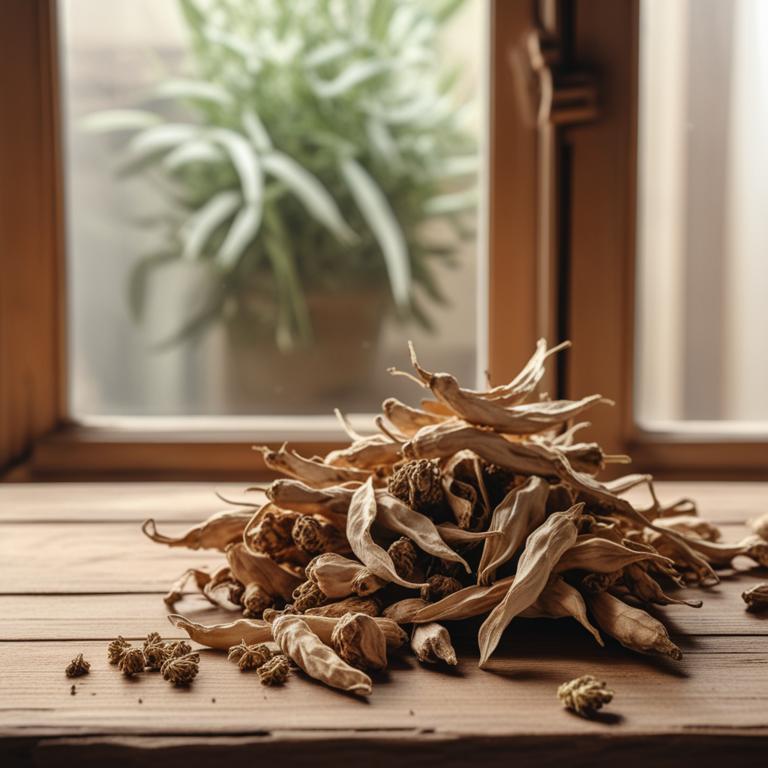
Causes and Remedies of Hiatus Hernia Using Medicinal Herbs
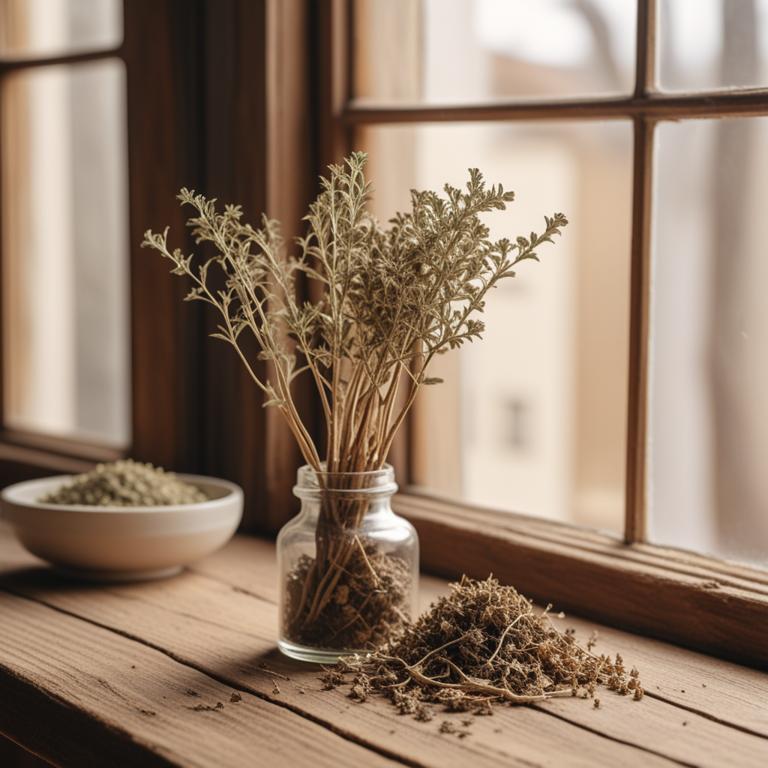
Understanding Abdominal Pain Causes and Herbal Solutions
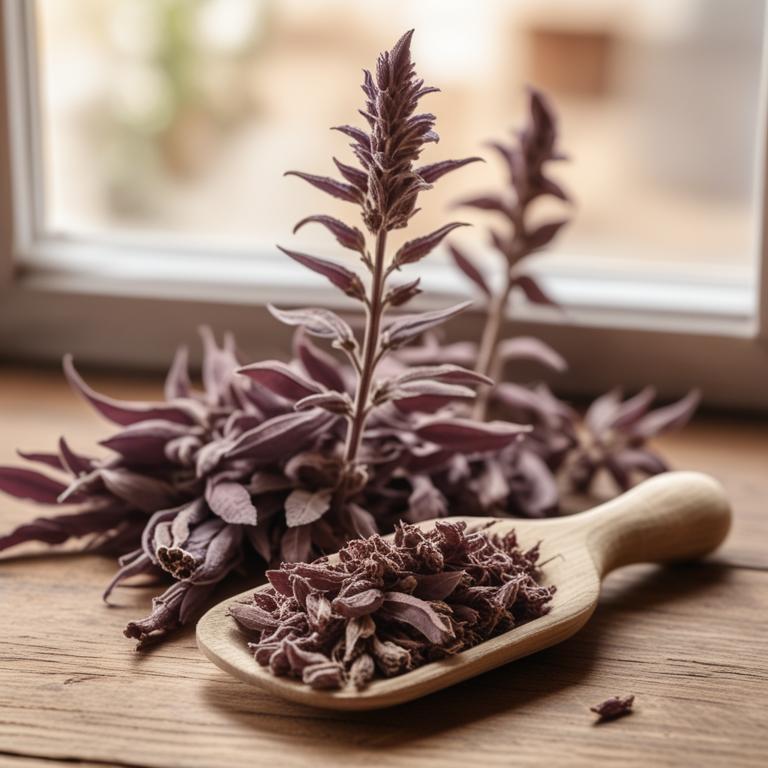
Overeating: The Causes and Medicinal Herbs for a Healthier You
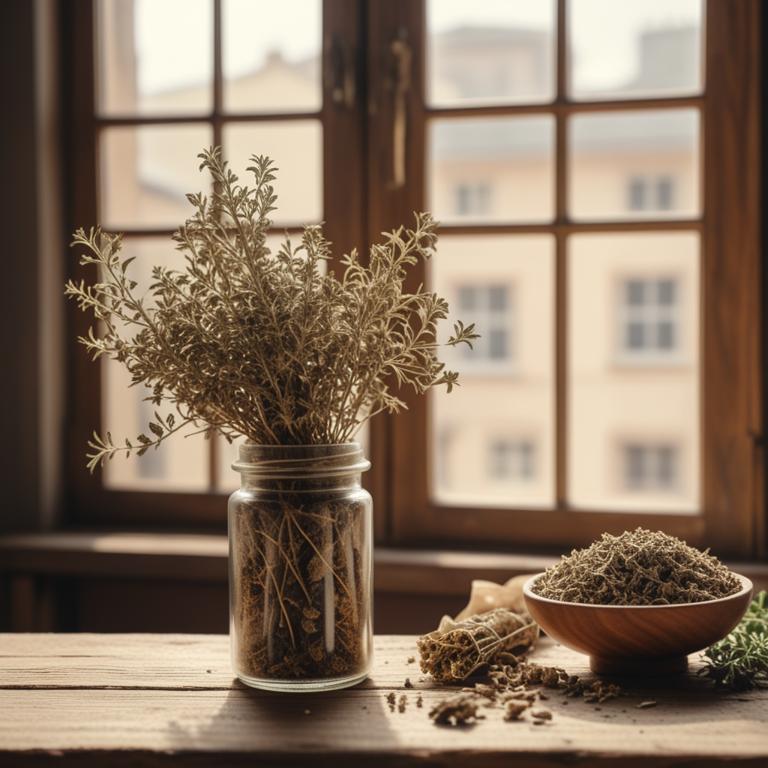
The Causes and Herbal Preparations of Stomach Discomfort




